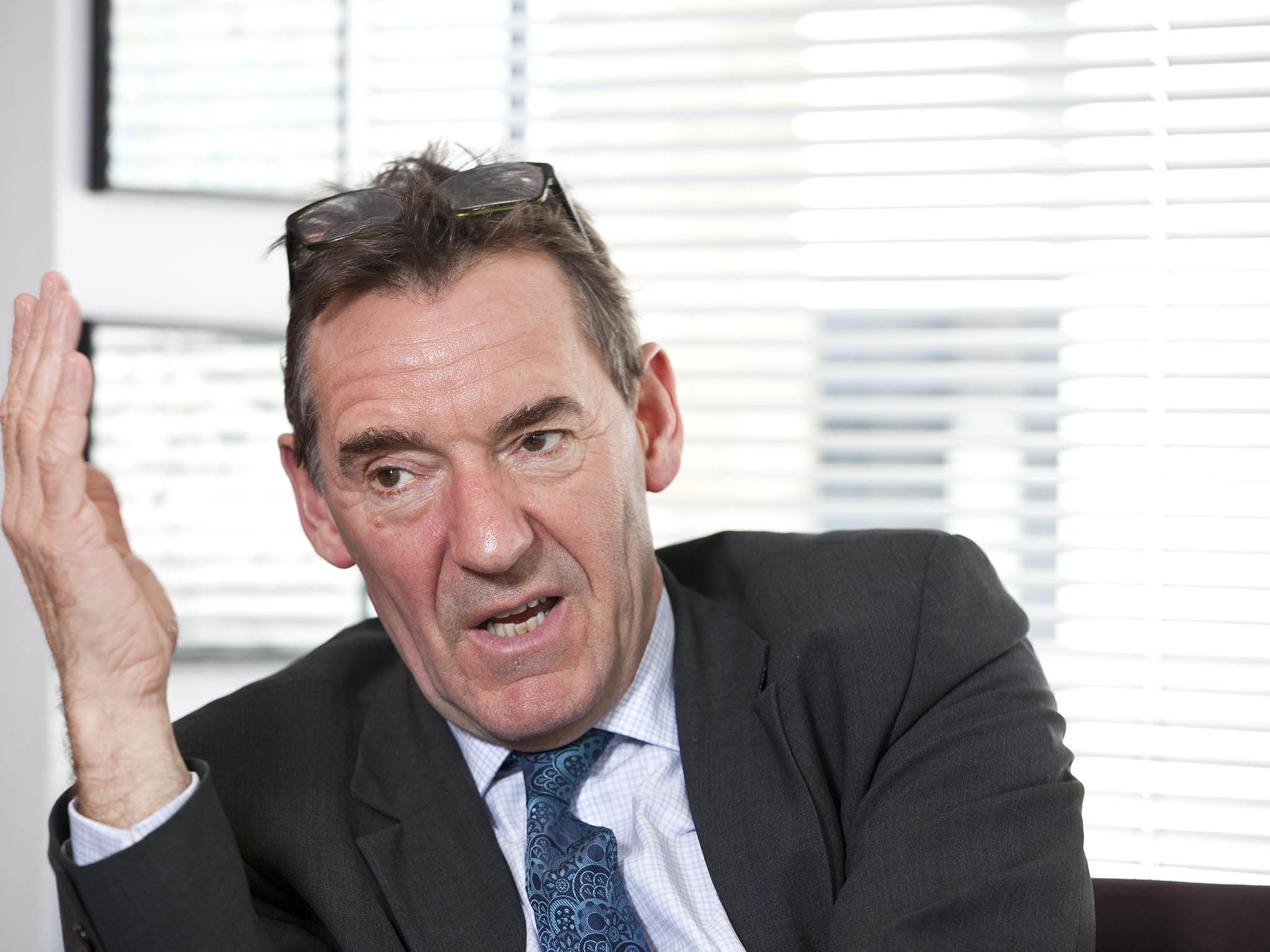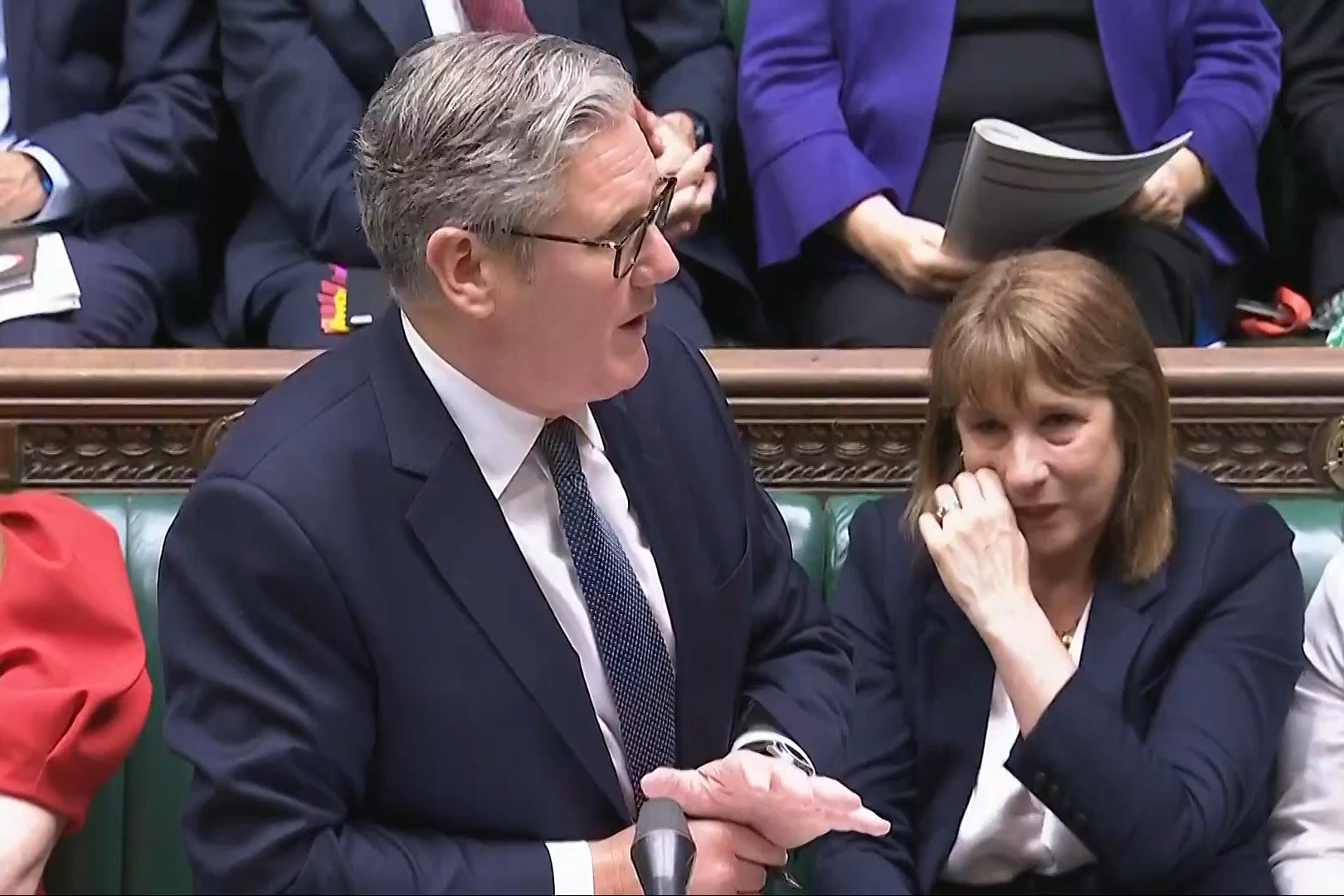Rachel Reeves must U-turn on her manifesto pledge not to raise taxes for working people or Sir Keir Starmer’s government will be forced to abandon other key priorities, one of the chancellor’s former top advisers has warned.
Jim O’Neill, a former Goldman Sachs chief turned Treasury minister who quit the Conservatives and later advised Ms Reeves, said she faces no choice but to abandon key parts of her economic policy – including her commitment not to raise income tax, national insurance contributions for employees or VAT.
Questioning whether that promise was now sustainable, he told The Independent: “Without changing some of the big taxes, welfare and pensions, they [Labour] can’t commit to things like Northern Powerhouse Rail, small modular nuclear reactors, and various other things that will make an investment and growth difference.”
His comments come in the wake of a disastrous week for Sir Keir’s government as ministers were forced to abandon key parts of welfare reforms to stop a rebellion by Labour MPs, leaving a £5bn black hole in its spending plans.

In a week defined by a distressed Ms Reeves shedding tears during Prime Minister’s Questions, the pressure on the government to balance the books and dramatically change strategy has increased, with the chancellor admitting that the U-turn came at a “cost”. And education secretary Bridget Phillipson said future spending decisions, including whether to axe the two-child benefit cap, have been made harder by the welfare reform U-turn.
But with Labour dropping spectacularly in the polls – and the prime minister facing growing disquiet from the back benches – mention of the government’s missions has all but disappeared, while the economy stagnates.
Lord O’Neill claimed that part of the problem was that the government was caught in short-term thinking about Nigel Farage and Reform, who had taken a large poll lead.
“They need to stop worrying about Farage, they have four years before that should matter,” he said.
Reflecting on the problems with the welfare reform bill, he said: “The past few days should force government to truly prioritise, link specific priorities to their growth mission, get out of the 24/7 social media, and, crucially, recognise it can’t deliver on all three of its fiscal rules, growth mission and manifesto tax commitments. Something has to give.
“I’d personally abandon triple lock on pensions, and the current welfare bill, and say they are going to pursue more serious welfare reform.”
Top pollster Luke Tryl, UK director at More in Common, told The Independent the government would be better off pushing through big tax hikes now in order to fix public services before the next election.
He said: “At this stage, the government would be better to do a broad-based tax rise and ensure they can deliver on making Britain feel like it’s working better, than risk a continuation of the public feeling Britain is totally broken.
“Having boxed themselves in, breaking the promise won’t be without pain, but the alternative – four years of the public not seeing change – is far worse politically and for the mood of the country.”
On Friday, Ms Reeves refused to rule out tax rises in the wake of what she admitted was the “damaging” climbdown on welfare cuts. The chancellor is said to have warned that any tax hikes this autumn are likely to be more painful than those she pursued last October, with all low-hanging fruit options having been taken.
Asked whether she could rule out tax hikes, she told The Guardian: “I’m not going to, because it would be irresponsible for a chancellor to do that.” The government is, however, believed to be opposing growing calls from Labour MPs for a wealth tax to fill the hole in the public finances.
The UK’s leading economic think tanks have, meanwhile, warned that tax rises are inevitable, with speculation that there could be a raid on pension funds and new rules to prevent people offsetting tax by putting their money into pensions.
Paul Johnson, director of the Institute for Fiscal Studies, said: “If we are looking at £30bn – which is quite plausible – you can’t see a way in which you raise that kind of money without hitting people on middle incomes.
“If you are looking for big money, then it has to be something in income tax, national insurance or VAT.”
Ben Caswell, senior economist at the National Institute of Economic and Social Research, said: “It seems, given the spending review and the allocation of funds, raising taxes in the autumn seems almost inevitable at this point.”
Arj Kumar, founder of tax advisers Taxd, warned: “The next Budget will likely see Rachel Reeves dig deeper, raising taxes further to cover government spending on defence and a boost to infrastructure. If these hikes continue to cripple businesses, it’s working families who will pay the ultimate price.”

The warnings come as the prime minister strongly hinted that the government is going to bring in tax rises at the next Budget.
In an interview with the BBC’s Nick Robinson, the presenter claimed that Sir Keir had said: “‘I’m not going to put your taxes up,’” adding: “Then taxes went up.”
The prime minister hit back: “Nick, be fair, we had a manifesto commitment that we wouldn’t increase income tax, national insurance and VAT for working people. That was a manifesto commitment. That is what I said to you last time, and that is what we’ve kept to.
“So the one thing we didn’t do in the last Budget was we didn’t breach that manifesto commitment. We’re not going to breach that manifesto commitment.”
Critics have noted that his response only closed the door to tax rises on the big three – income tax, VAT and national insurance.
Already, a leaked memo from deputy prime minister Angela Rayner to Ms Reeves has revealed that the left of the party is pushing for so-called wealth taxes on the super-rich and big corporations.
Ms Rayner outlined eight possible new wealth taxes instead of cutting public services further.
Any breakaway party should be called ‘Farage assistance group’ – Lord Kinnock
Welfare U-turn makes spending decisions harder, Bridget Phillipson admits
Ministers ‘pushed ahead too fast’ on welfare reform, says Phillipson
Corbyn and Sultana’s new breakaway party will only boost Farage, Neil Kinnock warns
Starmer’s approval ratings at lowest level since becoming PM after welfare chaos
The leadership rumours inside Labour that speak volumes about Starmer’s future







